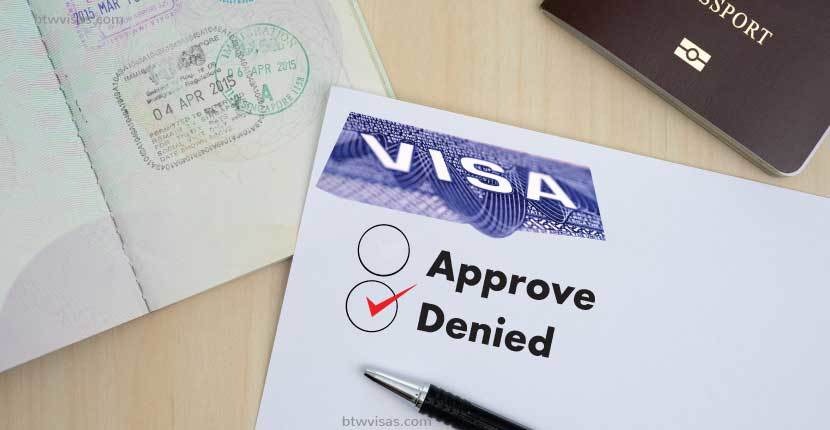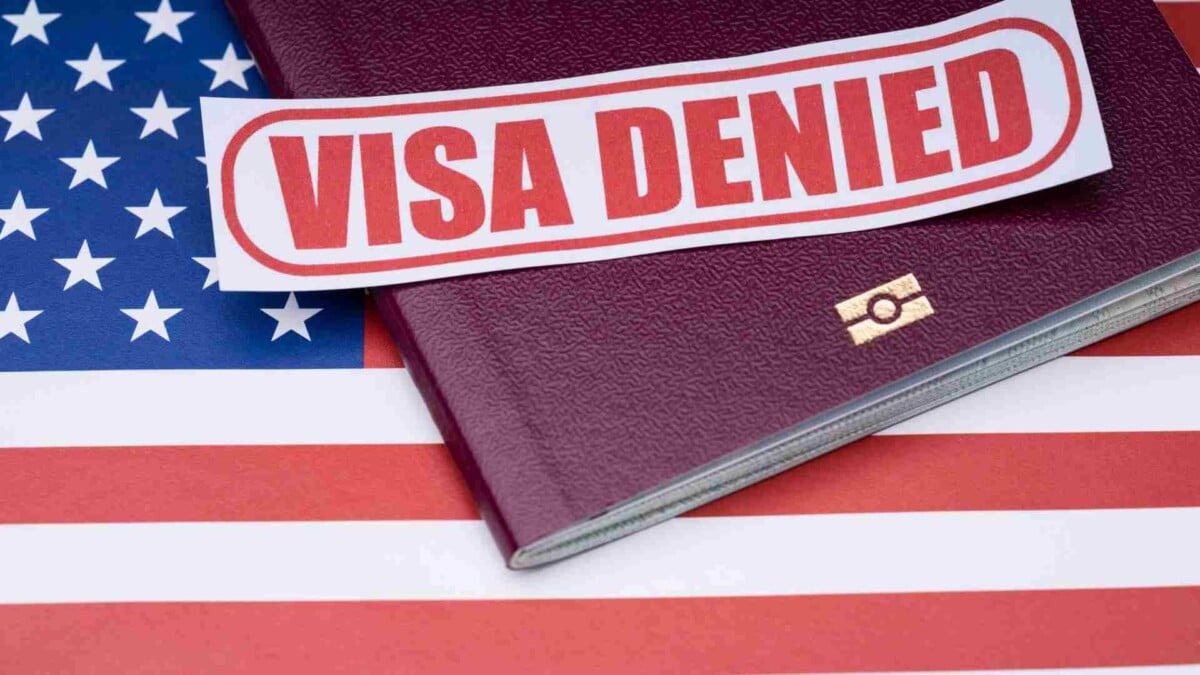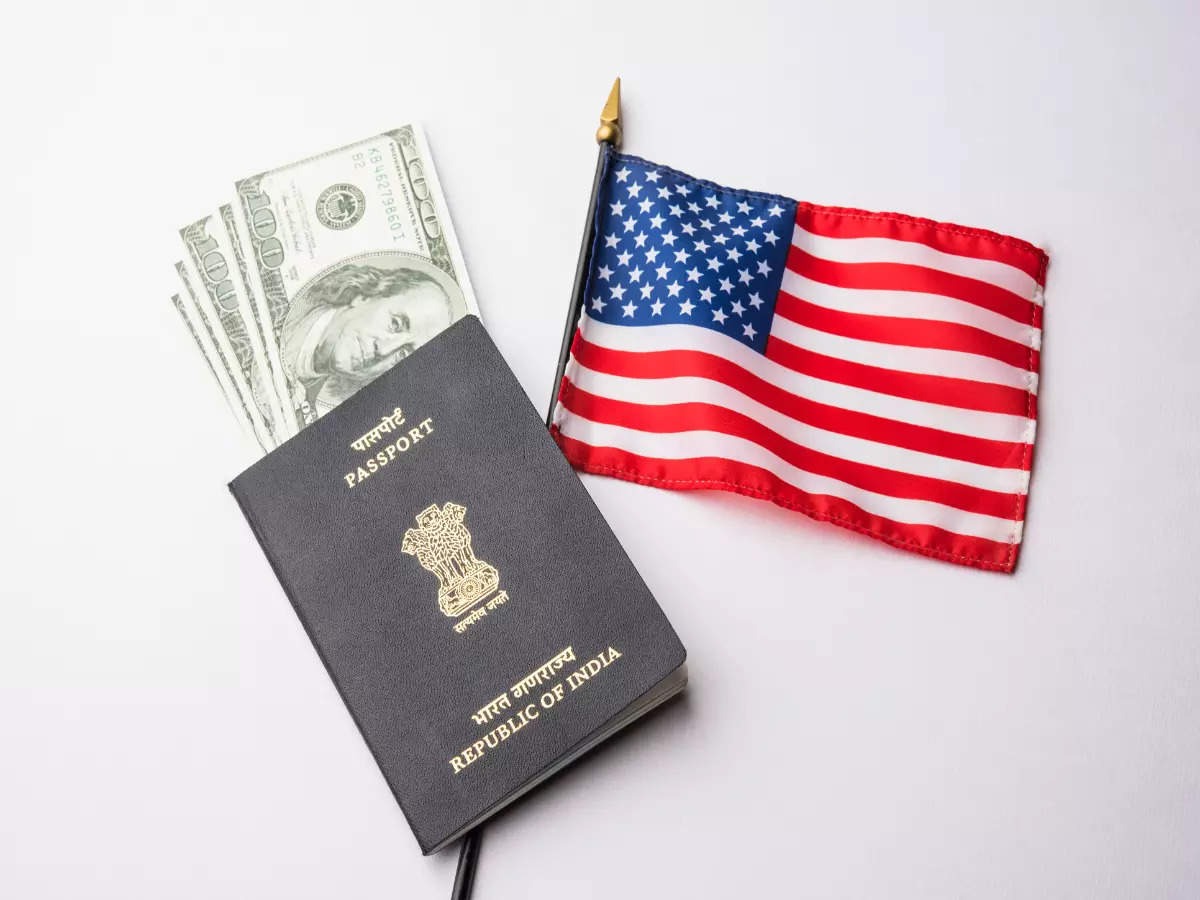Not all travelers who apply for an ESTA are approved. In some cases, an ESTA may be refused for various reasons, which will be discussed below in this article.
The electronic system for travel authorization (ESTA) is a pre-verification procedure for travelers who wish to visit the United States for tourist or commercial purposes under the visa Waiver program (VWP). ESTA applications are reviewed by the US Customs and Border Protection (CBP) to determine if the traveler poses a security or immigration risk.
The rejection of your ESTA application is a very annoying event that can be very annoying for people who want to travel to the United States. In this case, applicants from the visa waiver program (VWP) countries still have one Option: Apply for a B2 tourist visa, a B1 business visa or a B1/B2 visitor visa, which is a combination of both. You may be able to change the information you provided in your ESTA application if you have made a minor error. Serious errors, such as entering the wrong passport number cannot be corrected after. You must submit a new ESTA application.

What are the possible explanations for the rejection of your request?
Customs and Border Protection (CBP) may refuse an ESTA application for various reasons. Below we have listed some of the most popular explanations:
They have already stayed in the United States
On a previous trip to the United States, you exceeded the maximum duration set by the Visa Waiver Program (VWP). Alternatively, you have exceeded the maximum duration of your last US visa.
You have applied for the wrong Visa
When you have already visited the United States, you did not have the right type of visa for your visit. For example, you may have worked on a tourist visa. This would most certainly lead to the rejection of future US visa applications.
Your previous ESTA or visa application has also been refused
You have already applied for an ESTA visa exemption or a visa that has been refused and prevents you from entering the United States. Since the circumstances of his previous rejection remained the same, his last ESTA application was also rejected.
You have provided inaccurate information on the ESTA application
The US government has found that one or more of the answers you provided on your ESTA application form needed to be corrected when matching your user information with other databases.
The form contained incorrect passport information
You have included in the ESTA application form information about a passport that you previously claimed to have been stolen or lost, but that you still had in your possession. Alternatively, they may have provided inaccurate passport data that matched the passport data and identity of another tourist who was also denied an ESTA.
You have a delinquent record
Regardless of how you answered eligibility question 2 on the application form, CBP will most likely find out if you have a delinquent record and your ESTA application will be rejected.
Identity theft
Someone may have used your name unlawfully to commit a crime, or your name may be the same as someone else who committed a crime. When CBP conducts data checks on ESTA applicants, their name is identified as a security issue.
You have traveled to a blacklisted country
If you visited one of the following countries on or after March 1, 2011, you are almost certainly not eligible for an ESTA: Iran, Iraq, Libya, North Korea, Somalia, Sudan, Syria or Yemen are all candidates.
You have dual citizenship or are a national of a blacklisted country

If you have dual citizenship in Iran, Iraq, Libya, North Korea, Somalia, SUDAN, Syria or Yemen, you will not receive an ESTA unless the nature of your visit is suspicious or peril to the security of the United States.
Other Reasons
Incomplete or inaccurate information: Submitting an ESTA application containing incorrect or not-found information may result in a refusal. This could involve providing an incorrect passport number, travel dates, or incorrectly answering security questions.
- delinquent record: If a traveler has a delinquent record or has been involved in delinquent activity, he may be denied an ESTA. These include convictions for serious offenses such as medicine trafficking, roughness and human rights violations.
- Health problems: Travelers with a history of communicable issues or medicine addiction may be denied ESTA.
- Past visa violations: Travelers who have already overstayed their visas or violated the conditions of their entry into the United States may be denied an ESTA.
- National Security Concerns: If a traveler poses a browbeat to the national security of the United States, they may be denied an ESTA. This could include being a member of a particular delinquent organization or having links to a country that supports roughness.
- Non-eligibility for the Visa Waiver Program: The Visa Waiver Program (VWP) has certain eligibility criteria that travelers must meet to apply for an ESTA. If a traveler does not meet these criteria, he may be denied an ESTA.
- Refusal of entry to the United States: If a traveler has already been refused entry to the United States or has been deported, he may be denied an ESTA.
- Non-compliance with US immigration laws: Travelers who have already disobeyed US immigration laws or who have committed offenses in the past may be denied an ESTA.
- False information: Travelers who provide false information or attempt to distort the purpose of their trip may be denied an ESTA.
A few things to keep in mind
It is important to note that CBP reserves the right to refuse entry to the United States at the port of entry, even if a traveler is authorized to pass an ESTA. Factors such as changes in the traveler’s situation, new information about the traveler, or changes in U.S. immigration laws may result in an entry refusal.
If an ESTA application is refused, the traveler can submit a new application after solving the problem that led to the refusal. However, suppose that the refusal is due to serious delinquent activities and health problems or national security issues. In this case, the traveler may not be allowed to travel to the United States under the visa-free travel program and must apply for a traditional visa at an American embassy or consulate.
In addition, travelers who have already been denied a visa to the United States may also be denied an ESTA. If a traveler has been refused a visa in the past, it is important to check the reasons for the refusal and solve any problems that may have led to the refusal.
It is also important to note that if a traveler has a previous immigration violation or a history of overstaying their visa, they may be denied an ESTA. This may include even a day of exceeding your visa and a history of violating the conditions of your admission to the United States.

Another reason why an ESTA may be refused is due to previous trips to certain countries. If a traveler has recently visited countries that are known to support roughness or have encouraged roughness in the past, he may be denied an ESTA. This includes countries like Iran, Iraq, Syria and North Korea.
It is also important to note that travelers who have received an NSEERS (national Security Entry-Exit Registration System) designation may also be denied an ESTA. NSEERS was a program that required people from certain countries to register with the U.S. government when entering and leaving the United States. The program has since been discontinued, but travelers named under NSEERS can still be denied an ESTA.
In addition, travelers who have already been denied a US visa for any reason, including health problems, may be denied an ESTA. This includes travelers who have been denied a visa for medical reasons, such as a contagious issue, and people with a history of medicine addiction.
Finally, travelers with dual Iranian, Iraqi, Syrian or Sudanese citizenship may also be refused an ESTA. This is due to the recent changes to the US immigration law that limit the entry into the United States of people from these countries.





